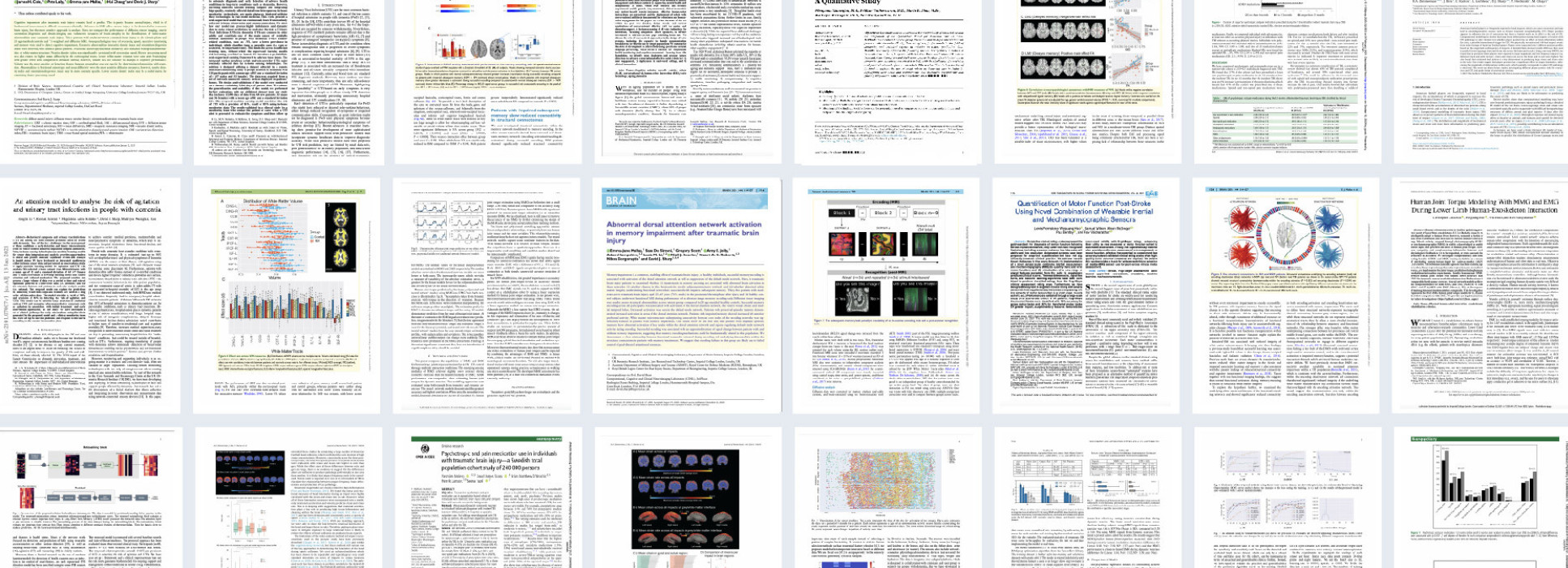BibTex format
@article{Gorgoraptis:2019:10.3233/NRE-182618,
author = {Gorgoraptis, N and Zaw-Linn, J and Feeney, C and Tenorio-Jimenez, C and Niemi, M and Malik, A and Ham, T and Goldstone, AP and Sharp, DJ},
doi = {10.3233/NRE-182618},
journal = {Journal of Alzheimer's Disease},
pages = {321--331},
title = {Cognitive impairment and health- related quality of life following traumatic brain injury},
url = {http://dx.doi.org/10.3233/NRE-182618},
volume = {44},
year = {2019}
}
RIS format (EndNote, RefMan)
TY - JOUR
AB - BACKGROUNDCognitive impairment is a common and disabling consequence of traumatic brain injury (TBI) but its impact on health-related quality of life is not well understood.OBJECTIVETo investigate the relationship between cognitive impairment and health-related quality of life (HRQoL) after TBI.METHODSRetrospective, cross-sectional study of a specialist TBI outpatient clinic patient sample. Outcome measures: Addenbrooke's Cognitive Examination Tool - Revised (ACE-R), and SF-36 quality of life, Beck Depression Inventory II (BDI-II), Pittsburgh Sleep Quality Index (PSQI) and Epworth Sleepiness Scale (ESS) questionnaires.RESULTS240 adults were assessed: n=172 (71.7% ) moderate-severe, 41 (23.8% ) mild, 27 (11.3% ) symptomatic TBI, 174 (72.5% ) male, median age (range): 44 (22-91) years. TBI patients reported poorer scores on all domains of SF-36 compared to age-matched UK normative data. Cognitively impaired patients reported poorer HRQoL on the physical, social role and emotional role functioning, and mental health domains. Cognitive impairment predicted poorer HRQoL on the social and emotional role functioning domains, independently of depressive symptoms, sleep disturbance, daytime sleepiness and TBI severity. Mediation analysis revealed that the effect of depressive symptoms on the emotional role functioning domain of HRQoL was partially mediated by cognitive dysfunction.CONCLUSIONCognitive impairment is associated with worse health-related quality of life after TBI and partially mediates the effect of depressive symptoms on emotional role functioning.
AU - Gorgoraptis,N
AU - Zaw-Linn,J
AU - Feeney,C
AU - Tenorio-Jimenez,C
AU - Niemi,M
AU - Malik,A
AU - Ham,T
AU - Goldstone,AP
AU - Sharp,DJ
DO - 10.3233/NRE-182618
EP - 331
PY - 2019///
SN - 1387-2877
SP - 321
TI - Cognitive impairment and health- related quality of life following traumatic brain injury
T2 - Journal of Alzheimer's Disease
UR - http://dx.doi.org/10.3233/NRE-182618
UR - https://www.ncbi.nlm.nih.gov/pubmed/31177238
VL - 44
ER -




